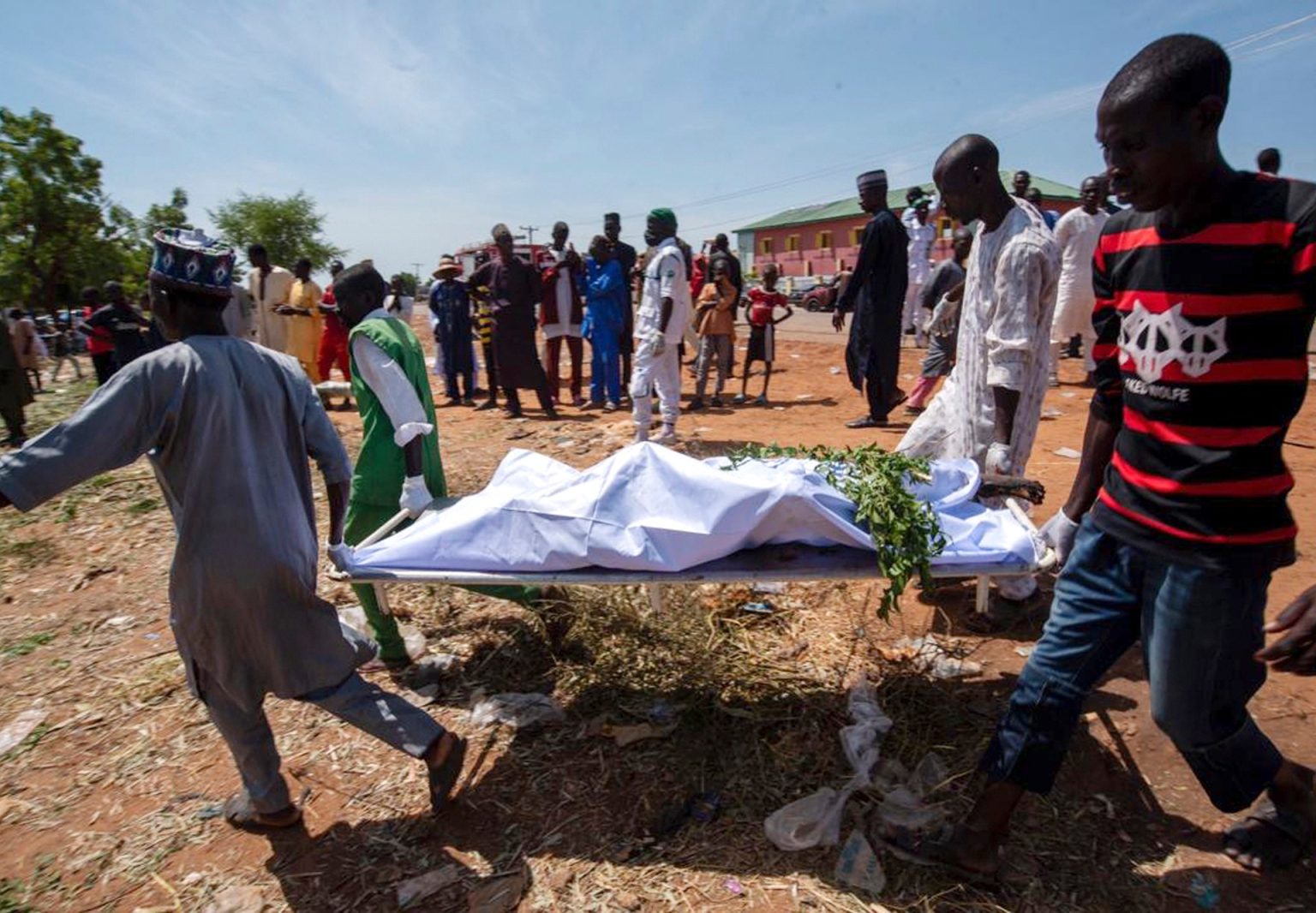In a tragic incident in northwestern Nigeria, more than 150 people, including children, were killed and dozens wounded after an overturned fuel tanker exploded on an expressway in Jigawa State. The crash occurred late at night in Majiya town, with residents rushing to the vehicle to collect spilled fuel. Tanker accidents are sadly common in Nigeria due to the lack of an efficient railway system for transporting cargo, prompting people to salvage fuel with cups and buckets, particularly after fuel prices tripled following the end of government gas subsidies. The majority of the bodies from this particular accident were unrecognisable, with emergency services conducting mass burials for victims who were burned to ashes at the scene.
Dr. Haruna Mairiga, head of Jigawa’s emergency services, oversaw the somber task of burying the victims of the overturned fuel tanker explosion in Majiya town. The tragic incident is just one in a series of deadly accidents involving fuel tankers in Nigeria, with over 1,500 such accidents occurring in 2020 alone, resulting in 535 deaths, according to Nigeria’s Federal Road Safety Corps. In a similar incident in September, 48 people lost their lives when a fuel tanker collided with another truck in north-central Nigeria. The recurring occurrences of these accidents have raised concerns about the country’s enforcement of safety measures and traffic regulations to prevent further loss of life.
The recent fuel tanker explosion in northwestern Nigeria has once again shed light on the dangerous practice of salvaging fuel from overturned vehicles, a necessity for many due to the country’s continuously rising fuel prices. Despite the risks involved, people are driven to collect fuel with cups and buckets following accidents in order to secure fuel for their homes and businesses. The government’s decision to end costly gas subsidies has only exacerbated the situation, leading to an increase in these risky salvage operations and subsequent accidents.
The lack of an efficient railway system in Nigeria further adds to the prevalence of deadly tanker accidents like the one that occurred in Jigawa State. With limited alternative methods for transporting cargo, fuel tankers are often relied upon to deliver crucial resources, making them a common sight on the country’s roads. However, the absence of a well-maintained railway network means that these tankers must travel by road, increasing the likelihood of accidents and spills that endanger the lives of both drivers and bystanders. Improving infrastructure and transportation options could help reduce the frequency of such tragic incidents in the future.
As emergency services continue to grapple with the aftermath of the overturned fuel tanker explosion in Majiya town, questions linger about the implementation of safety measures and traffic regulations in Nigeria. Despite the high number of accidents involving fuel tankers, there appears to be a lack of effective policies and enforcement mechanisms to prevent such disasters from occurring. The need for stricter safety standards, regular maintenance checks for vehicles, and greater oversight of hazardous cargo transportation is evident in light of the devastating toll these accidents are taking on communities across the country. Addressing these issues is crucial to protecting the lives of Nigerian citizens and ensuring safe transportation practices in the future.
In the wake of the tragic incident in northwestern Nigeria, where over 150 people lost their lives in a fuel tanker explosion, the importance of prioritizing public safety and implementing effective regulations cannot be overstated. As the country mourns the victims of this latest accident, urgent action is needed to prevent similar tragedies from happening in the future. By addressing the underlying issues that contribute to these deadly incidents, such as the lack of a reliable railway system, rising fuel prices, and inadequate safety measures, Nigeria can work towards creating a safer and more secure environment for its citizens. Only through comprehensive reforms and concerted efforts to improve transportation infrastructure and regulatory oversight can the country hope to avoid further loss of life in avoidable accidents involving fuel tankers.


